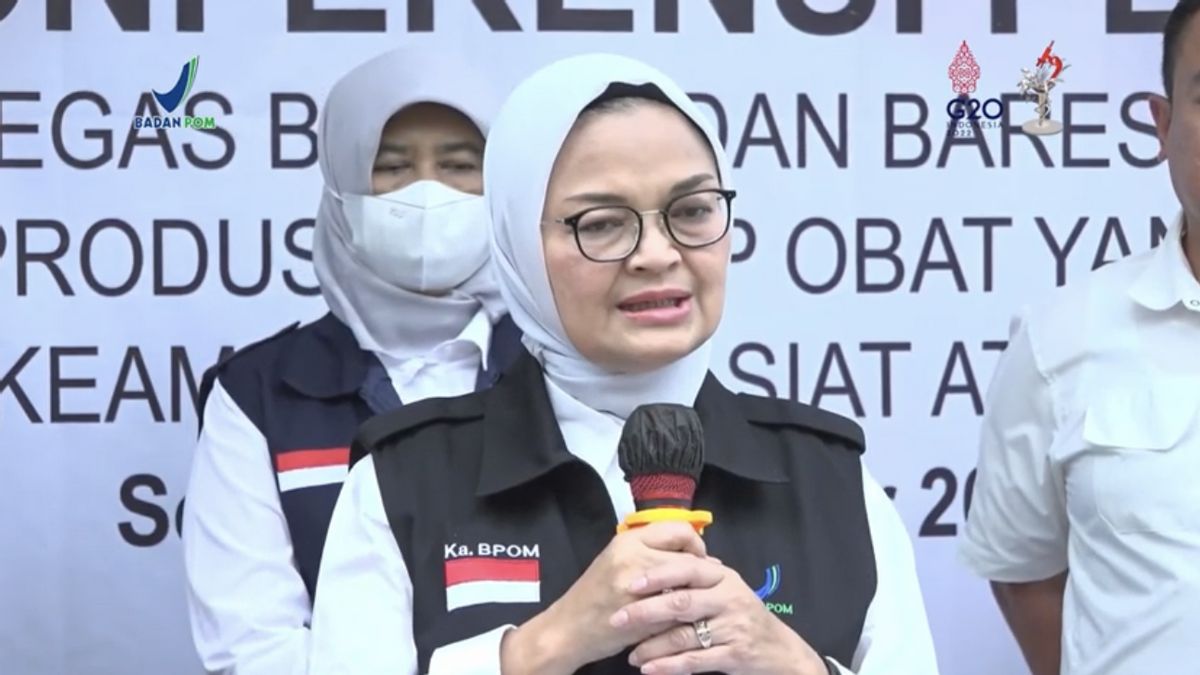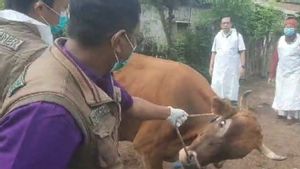SERANG - The Food and Drug Supervisory Agency (BPOM) has given administrative sanctions to two pharmaceutical companies, for allegedly using Propylene Glycol raw materials contaminated with Ethylene Glycol (EG) and Diethylene Glycol (DEG) which are far from the specified limit.
The two companies are PT Yarindo Farmatama, Cikande, Serang, and PT Universal Pharmatical Industri, Medan, North Sumatra.
Head of BPOM Penny Kusumastuti Lukito said that the two companies were subject to administrative sanctions in the form of termination of production permits, distribution, and product recall.
It is known that BPOM has responded quickly to a case of death from acute kidney failure which is thought to have come from a syrup-type drug containing Ethylene Glycol (EG) and Diethylene Glycol (DEG). They conducted searches of several companies in Indonesia.
"In the aspect of prosecution, we have collaborated with the Criminal Investigation Unit of the National Police since Monday, October 24. Against two pharmaceutical industries suspected of using solvents, namely PT Yarindo Farmatama, Cikande, Serang and PT Universal Pharmatical Industri, Medan, North Sumatra", said Penny to reporters in Serang, Banten, Monday, October 31.
In his findings, continued Penny, his party conducted a sampling related to the products marketed by the company. As a result, BPOM found the existence of raw fruit and sources of input without going through the specified qualifications.
"We found evidence that the pharmaceutical business has changed the raw material of propylene glycol and the source of its suppliers without going through the supplier qualification process and the submission of raw materials", he said.
"It should be done by the pre-producer according to existing rules, if there is a change, the BPOM agency must report it", he continued.
On that basis, the company did not comply with the provisions of the legislation on health.
Penny added that her party together with the Criminal Investigation Unit of the Police would follow up on the criminal aspects of the two companies. In this case, two companies were examined to witness distributors.
Based on the results of the examination, it is reasonable to suspect that a crime has occurred, namely producing or distributing pharmaceuticals that do not meet the standards for safety, efficacy, and quality requirements.
As stated in Law number 36 of 2009 concerning health, Article 196 and Article 98 paragraph 2 and paragraph 3 with imprisonment of 10 and a maximum fine of IDR 1 billion.
Then trade that does not comply with the requirements and provisions of Article 62 paragraph 1 of 2018, RI Law No. 8 concerning consumer protection for 5 years and a fine of IDR 2 billion.
The English, Chinese, Japanese, Arabic, and French versions are automatically generated by the AI. So there may still be inaccuracies in translating, please always see Indonesian as our main language. (system supported by DigitalSiber.id)













